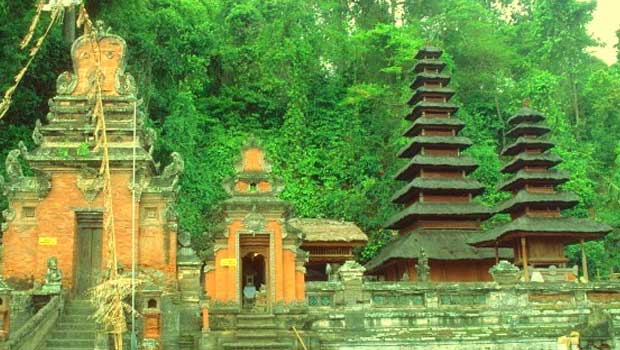Next to the natural wonders of Bali such as beaches and coral reefs, the temples are its next-biggest attraction. They’re picturesque, exotic, historic, and world-famous. Some of them get thousands of visitors per day. But they can be baffling, too. We’ll try to demystify temples in Bali with this handy little guide:
A very brief overview of Balinese Hinduism
Hinduism is easily the most complicated religion in history. It appears to be polytheistic, meaning that there’s many gods, but also all gods are said to be one god in many forms, rather like the Judeo-Christian trinity. Furthermore there’s sub-castes of gods; there’s a trinity of Brahma, Vishnu, and Shiva, and then there’s the lesser Vedic gods who resemble ancient Roman / Greek gods in being associated with some aspect of nature. Hindus also believe in reincarnation, and Balinese Hinduism is further complicated by the mixing in of some animism and ancestor worship on the side. There is also a different attitude towards sexuality, tending to view it as holy worship rather than a shameful sin as with Western religions.








